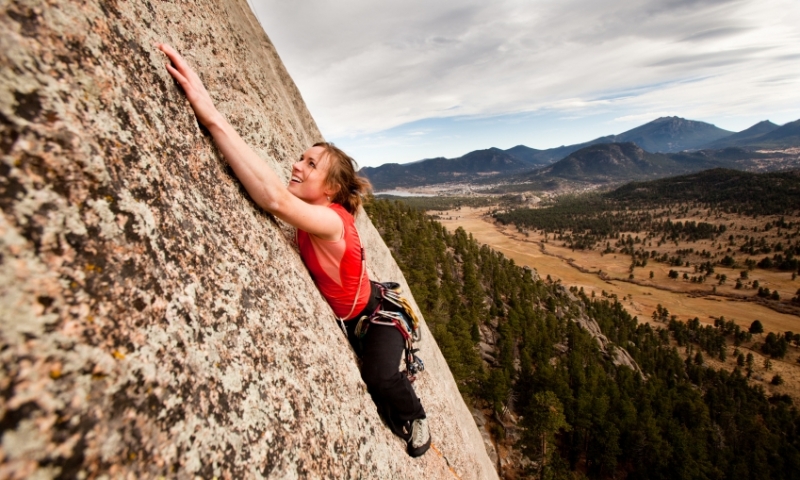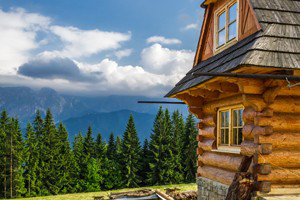- Contact White River National Forest for important information and resources as you prepare for a trip into the mountains. Call (970) 925-3445 to talk to a ranger in Aspen.
- Many of Colorado's famous "fourteeners," including Mount Elbert, Snowmass Mountain and Maroon Bells, are within a short drive (and a longer climb) of Aspen!
- Safety first means hitting the trail as the sun rises, carrying lots of water and being prepared for extreme weather.
Overview
Surrounded by multiple mountain ranges, Aspen offers access to spectacular treks of varying lengths, steepness and technical difficulty. Seasoned mountaineers looking for a challenge of epic proportions as well as newbies looking to bag their first 14,000-plus foot peak will find an adventure that suits their aims. East of Aspen one can venture into the Elk Mountains and summit (without ice axe or ropes) the tallest peak in Colorado, Mount Elbert. To the West, the Sawatch Mountains offer multiple "fourteeners" that provide spectacular views and near-solitude. The vast majority of the wilderness surrounding Aspen is protected National Forest, so there are hundreds and hundreds of miles of well-maintained trails to take you to glacial lakes and mountain summits.
The summer hiking/climbing season generally begins as the snow melts in the weeks of June and ends as temperatures drop in the early weeks of September. When heading into the wilderness, one should always remember: saftey first! This means having proper clothing and provisions (especially water). At high-altitude weather can change drastically in a matter of minutes. Contact White River National Forest's Aspen Ranger District at (970) 925-3445 for information regarding trails and weather.
Where To Go Mountaineering and Climbing
- Mount Elbert (14,433 ft.): The easiest and most popular route (Class I) to the summit of the highest peak in the Sawatch Range starts at South Mount Elbert Trailhead and follows the mellow Colorado Trail to Mount Elbert Trail which is much steeper as you hike up to the mountain's east ridge. This route measures about 11 miles roundtrip. Trailhead can be found at Lakeview Campground on Highway 24 north of the town of Twin Lakes. (A 4WD vehicle can take you past this trailhead and Shore Pretty Overlook to Mount Elbert Trailhead, shaving off about 4 miles from your trek.)
- Snowmass Mountain (14,092 ft.): From Snowmass Creek Trailhead, which can be accessed from Snowmass Creek Road (whose turnoff is located 15 miles north of Aspen on Highway 82), a Class III approach of the summit measures 21 miles roundtrip with 5700 feet elevation gained. While this is a long hike, its the easiest to summit and quite popular. The trail leads hikers around the southside of Snowmass Lake from which point hikers must scramble to access the east ridge of this Elk Range peak. As you might expect of a mountain named "Snowmass," you will likely encounter snowfields well into the summer months.
- North Maroon Peak (14,014 feet): A summit attempt on this peak's North Face can be made from Maroon Creek Trailhead via Buckskin Pass Trail. This classic climb (Class IV) follows the northeast ridge and has multiple cruxes. Often, the climb, even into late-June, must be done entirely on snow. Expert climbers have met their maker while attempting to bag this peak.
- Grotto Wall: For those seeking single- and multi-pitch trad and sport routes, look no further than the Grotto Wall located on Independence Pass Road, with parking located between mile markers 50 and 51. This site offers climbing routes for climbers of varying skill levels (5.8-plus).
Guided Tours & Rentals
A number of outfitters and guide services offer equipment rentals as well as guided half-day, full-day and multi-day trips into the local wilderness.



